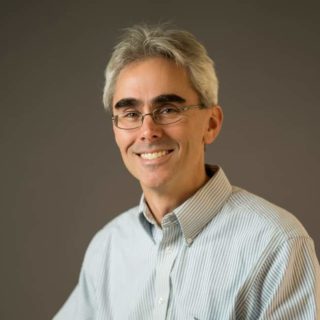Paul A. Callo

BS, MS, Virginia Polytechnic Institute and State University; PhD, University of Maryland
I have always been an inquisitive person, and have disliked not knowing the answers to puzzling questions. To that end, I have always endeavored to learn as much as I can about a wide variety of subjects. As an undergraduate, I focused on the organismal aspects of biology. I received my BS in biology from Virginia Tech in 1993 and immediately entered graduate school (also at Virginia Tech) to study blue jay food caching. While there I was able to definitively demonstrate that blue jays, an important dispersal agent for large-nut trees like oaks, remember with great precision the location of their own caches and have great difficulty finding the caches of other jays. After receiving my master’s degree in biology in 1996, I spent a summer conducting songbird surveys in the backwoods of West Virginia. I then went on to pursue my PhD in zoology at the University of Maryland, College Park. While there I studied predator-prey relationships in migratory songbirds. I specifically focused on the spatial allocation of parental care by red-eyed vireos, blue-headed vireos & hooded warblers and how it is affected by their differing extra-pair mating strategies (contrary to popular belief most bird species are not faithful for life).
Since that time I have continued to work with red-eyed vireos and have been able to extend a basic study of behavior into a long-term study of their territory fidelity and survivorship at the Hemlock Hill Biological Research Area in Pennsylvania. In the past year I have expanded this study to include sites in Augusta County, Virginia. I have also begun to include an annual survey of blood parasites found among these birds in these areas.
I greatly enjoy teaching students about science and biology. I particularly delight in those “Aha!” moments when students recognize the interconnectedness of all the things they have been learning about. The environment afforded us here at Mary Baldwin University is key to that enjoyment. The hands-on learning format of our lab courses offers students the opportunity to not only hear about how biological processes work in lecture, but also see for themselves how they work.
In my spare time I enjoy playing with the kids, home renovation projects, hiking with the dogs, and music!